Home »
Misc »
How is the olympic basketball team chosen
How is the olympic basketball team chosen
History, top teams and all you need to know
Basketball was invented in the United States of America in 1891. But it didn’t take too long for the sport to become popular. Today, it’s one of the most-watched sports in the world.
Its rise can be traced back to its roots in a gym class in Springfield, Massachusetts, making its way into high school and colleges before evolving into a professional sport it is today. Eventually, it made its way to the sport’s grandest events.
When did basketball start in the Olympics?
Basketball was introduced in the Olympic programme at the 1904 Games in St Louis as a demonstration event. Basketball was first contested as a medal event at the 1936 Olympics. Women’s basketball, meanwhile, made its debut at the Montreal 1976 Games.
3x3 basketball made its Olympic debut at Tokyo 2020.
Who qualifies for Olympic basketball?
A total of 12 teams, each in the men’s and the women’s competition, qualify for the basketball event at the Olympic Games.![]()
While seven teams can gain entry through the FIBA World Cup, four slots are determined through the FIBA Olympic qualifying tournament. The last remaining slot is reserved for the hosts.
Which country has won the most Olympic gold medals in basketball?
The United States of America is the most successful team in the history of Olympics basketball.
The USA Olympic men’s basketball team has won the gold medal a record 16 times, which includes an unbeaten streak from 1936 to 1968.
The USA women’s basketball team, meanwhile, has pocketed the gold medal on nine occasions. This includes an unbeaten run that’s still in place and dates back to Atlanta 1996.
USA dominates Olympic basketball
Having invented the sport in the late 1800s, it was no surprise that the USA dominated basketball once it was included as a medal event at the 1936 Olympics.
With the Young Men’s Christian Association (YMCA) playing a key role in spreading the sport to various nations, as many as 21 teams competed for the top honours at the Berlin 1936 Games.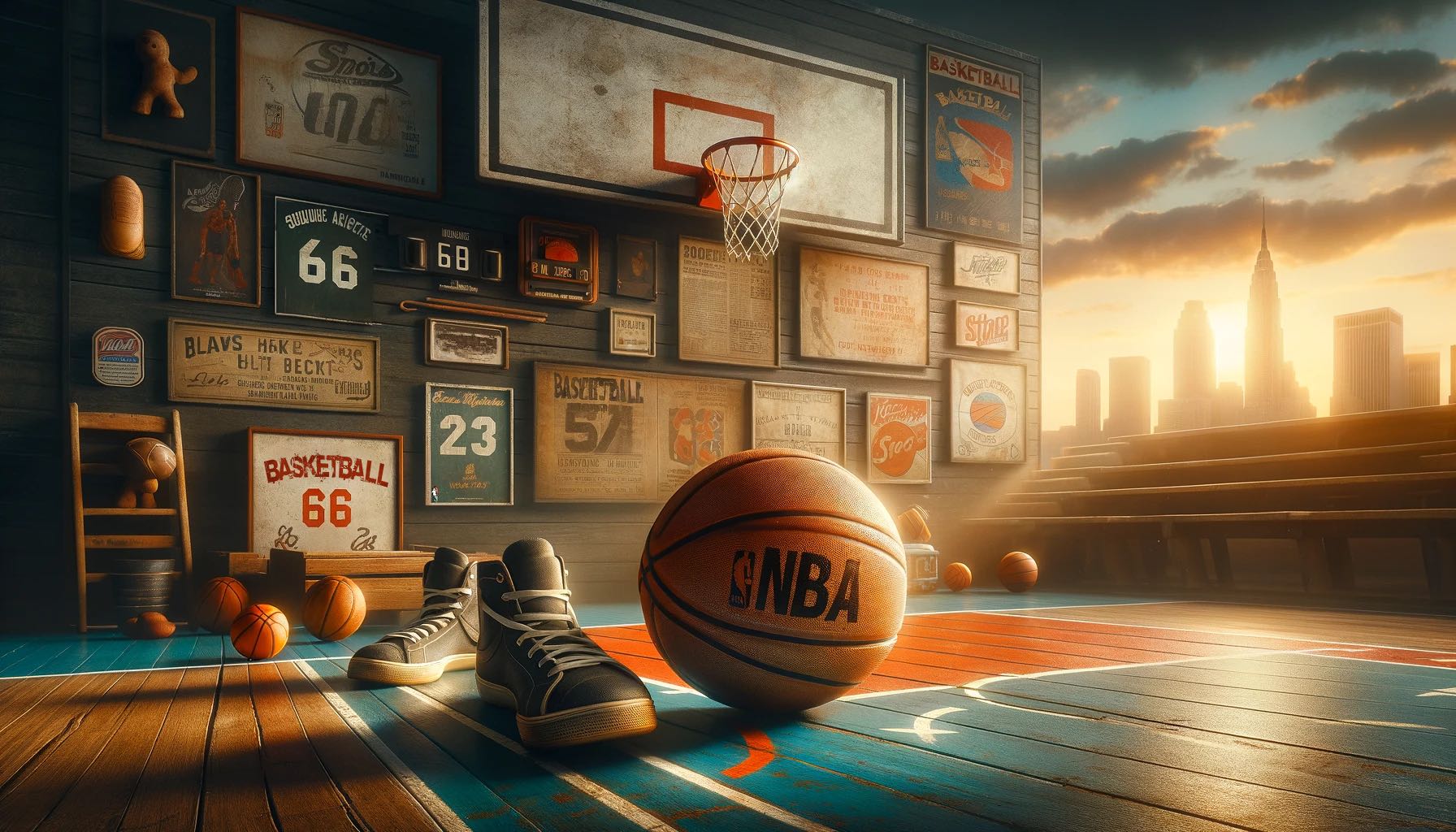
But none could stand in the USA’s way as they romped home to emphatic wins in each of their matches to take home the gold.
The coming years saw the Americans grow stronger as they retained the Olympic title in commanding fashion. With no losses throughout their campaigns, their wins in the gold medal matches were most startling.
The USA basketball team beat France 65-21 in the final of the 1948 Games. The Soviet Union, meanwhile, lost to the Americans in the following four editions -- 1952, 1956, 1960 and 1964 -- with the champions recording dominating wins to retain their crown.
This period also saw the rise of the Soviet Union as a force in the international basketball scene.
The Soviets had made their presence felt at the continental stage by winning the biennial European Basketball Championships 10 times from 1951 to 1971 and the FIBA World Championships in 1972.
And when the 1972 Munich Olympics came around, their sole focus was to capture the only title missing from their cabinet -- an Olympic gold in basketball.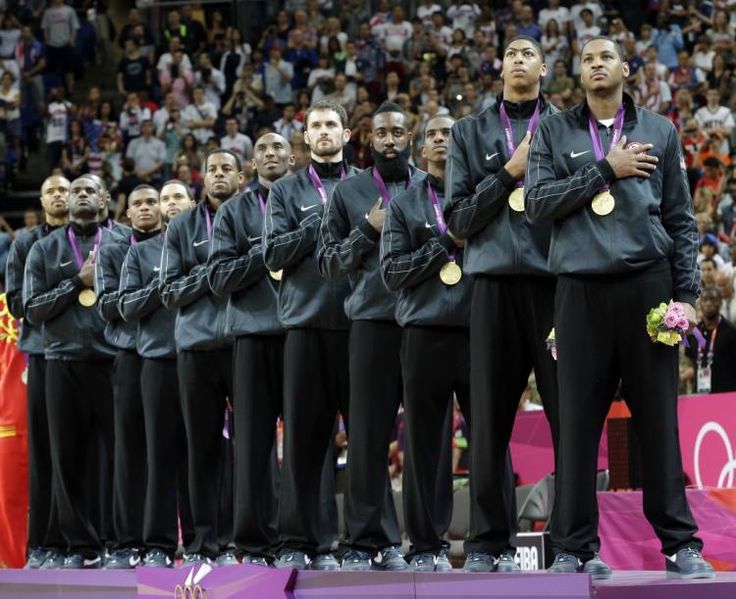
USA gets a shock at Munich Olympics
Coming into the Munich Olympics, the Americans were once again favourites to retain their title. But a look at their build-up suggested otherwise.
They had lost out to the Soviets in the final of the 1970 World University Games and bowed out of the 1971 Pan American Games without a medal.
What really hurt them in this phase was the lack of international experience in the squad. With the Olympic competition being restricted to amateurs, the best hoopsters in America were kept out of the Olympic team -- as they turned pro by joining the NBA -- while the top collegiate talent made up the squad.
Though this worked for the USA in the previous editions, this time the Soviets had found a way to exploit the American limitation by listing their players as soldiers or workers, which allowed them to breach the amateur rules.
This meant while the USA had high school sophomore Doug Collins and the North Carolina State University rookie Tommy Burleson as their best players, the Soviets rode on the brilliance of experienced stars Sergei Belov, Modestas Paulauskas and Alexander Belov.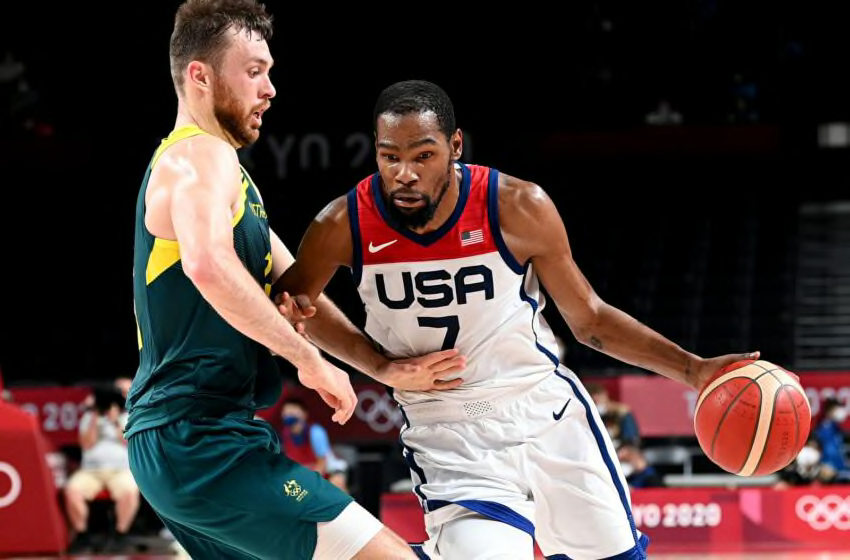
However, it wasn’t until the gold medal game that the lack of experience came to haunt the USA.
Having come into the gold medal match without losing a game, the final was expected to be a close contest. But the Soviets had a different plan.
The USA lost to the Soviet Union in the final of the 1972 Olympics in Munich.
Picture by Getty Images
The Soviet Union basketball team controlled the proceedings with smart ball play, often using the length of the court to stretch the American defence to score points at will. The Soviets scored first and led by the healthy margin of 26-21 at the half.
“We particularly struggled against the Russians because they were adept at controlling the tempo,” Mike Bantom, a member of the ’72 team, now senior vice president for NBA player development, told the New York Times.
While the Americans mounted a comeback in the second period it wasn’t until the final six minutes that they had their opponents in trouble.
Trailing by eight points, the Americans put pressure and saw the Soviets stumble, helping them reduce the gap to just a point with six seconds left on the clock.
Down to the wire for the gold medal, Doug Collins - the pillar of his team - was not done yet as he made a fine open-court steal and drove towards the paint before being knocked down.
The foul meant the Americans were awarded two free throws to seal the match. While Collins sank them both to put his side ahead, the Soviets called for a time-out.
The game resumed with a second left, and when that went by, the United States players started celebrating. But the drama was not over yet.
Moments later, the FIBA president was seen on court asking for a redo of the final three seconds due to a refereeing error.
This time though, the Soviets ensured that they made the most of the opportunity as Alexander Belov pulled out a buzzer-beater to subject the USA to their first loss at the Olympic stage.
Though the Americans appealed against the final decision, it was turned down as the Soviet Union won their maiden basketball Olympic crown.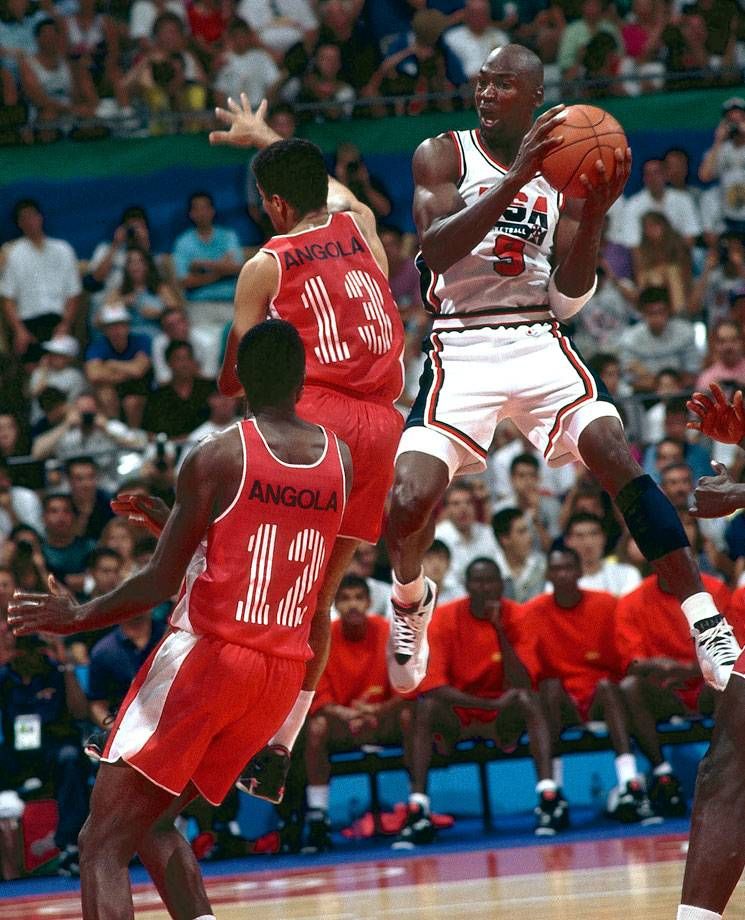
The Dream Team
The coming years also saw a number of countries making the most of the loopholes in the amateur player rule to field top talents at the Olympics.
However, this changed in 1992 after FIBA ruled to include professionals for the Barcelona Olympics.
This allowed the USA to select what was later dubbed as the greatest sports team ever assembled.
The team featured the likes of NBA superstars Michael Jordan, Larry Bird, Magic Johnson, Patrick Ewing, Scottie Pippen and Karl Malone among others.
The Dream Team, coached by Chuck Daly, a two-time NBA champion, had a pre-competition camp in Monaco and then moved into a luxury hotel in Barcelona, where they stayed during the Games.
The Dream Team dominated the Olympic competition, sailing through to win the gold medal. They were the first team to score 100 points in every match at the Games, something that led to their head coach commenting: “It was like Elvis and the Beatles put together.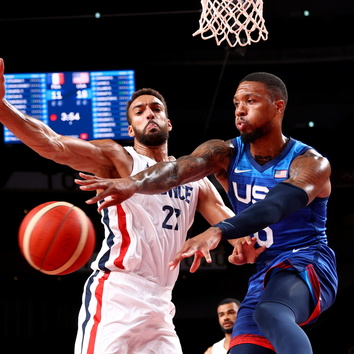 ”
”
However, it’s the legacy that the team left behind that had a lasting impact on the popularity that basketball enjoys today.
Following Barcelona 1992, foreign recruits have been a major draw in the NBA with Yao Ming and Andrea Bargnani being the number one draft picks in (2002) and (2006) respectively. Meanwhile, Dirk Nowitzki and Giannis Antetokounmpo have won the NBA MVP award since.
Olympic basketball winners: Men's
Men's Olympic basketball: All medallists | Olympics | Gold medal | Silver medal | Bronze medal |
|---|
| Berlin 1936 | USA | Canada | Mexico |
| London 1948 | USA | France | Brazil |
| Helsinki 1952 | USA | Soviet Union | Uruguay |
| Melbourne 1956 | USA | Soviet Union | Uruguay |
| Rome 1960 | USA | Soviet Union | Brazil |
| Tokyo 1964 | USA | Soviet Union | Brazil |
| Mexico 1968 | USA | Yugoslavia | Soviet Union |
| Munich 1972 | Soviet Union | USA | Cuba |
| Montreal 1976 | USA | Yugoslavia | Soviet Union |
| Moscow 1980 | Yugoslavia | Italy | Soviet Union |
| Los Angeles 1984 | USA | Spain | Yugoslavia |
| Seoul 1988 | Soviet Union | Yugoslavia | USA |
| Barcelona 1992 | USA | Croatia | Lithuania |
| Atlanta 1996 | USA | Yugoslavia | Lithuania |
| Sydney 2000 | USA | France | Lithuania |
| Athens 2004 | Argentina | Italy | USA |
| Beijing 2008 | USA | Spain | Argentina |
| London 2012 | USA | Spain | Russia |
| Rio 2016 | USA | Serbia | Spain |
| Tokyo 2020 | USA | France | Australia |
Women’s basketball at the Olympics
While the men’s game has enjoyed a storied history under the Olympic banner, women’s basketball has a similarly rich vein of tales to tap into.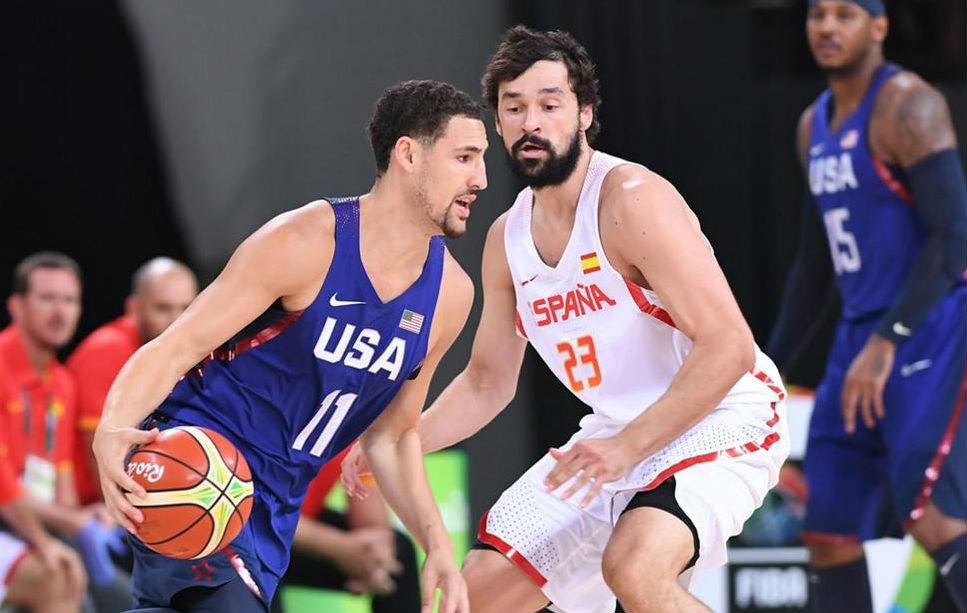
The USA is the most successful team in women's Olympic basketball with eight titles.
Making its debut at the 1976 Games in Montreal, women’s basketball has been a constant presence at the Olympics ever since.
The Soviet Union was the first to claim the Olympic title in the women’s category by beating the United States in the final at the 1976 Games. While the Soviets retained their crown at their home Games in 1980, the Americans took the gold medals in the following two Games.
In 1992, a Unified Team consisting of the former Soviet Republics beat China for the title.
The Americans, however, returned to regain their crown at Atlanta 1996 and have won the title at every edition since.
Olympic basketball winners: Women's
Women's Olympic basketball: All medallists | Olympics | Gold medal | Silver medal | Bronze medal |
|---|
| Montreal 1976 | Soviet Union | USA | Bulgaria |
| Moscow 1980 | Soviet Union | Bulgaria | Yugoslavia |
| Los Angeles 1984 | USA | South Korea | China |
| Seoul 1988 | USA | Yugoslavia | Soviet Union |
| Barcelona 1992 | Unified Team | China | USA |
| Atlanta 1996 | USA | Brazil | Australia |
| Sydney 2000 | USA | Australia | Brazil |
| Athens 2004 | USA | Australia | Russia |
| Beijing 2008 | USA | Australia | Russia |
| London 2012 | USA | France | Australia |
| Rio 2016 | USA | Spain | Serbia |
| Tokyo 2020 | USA | Japan | France |
USA Basketball - Why Can Pros Complete in International Events
By Jan Hubbard
If there is one basketball rule that has consistently befuddled the experts, it is the rule that led to the participation of NBA players in the Olympics.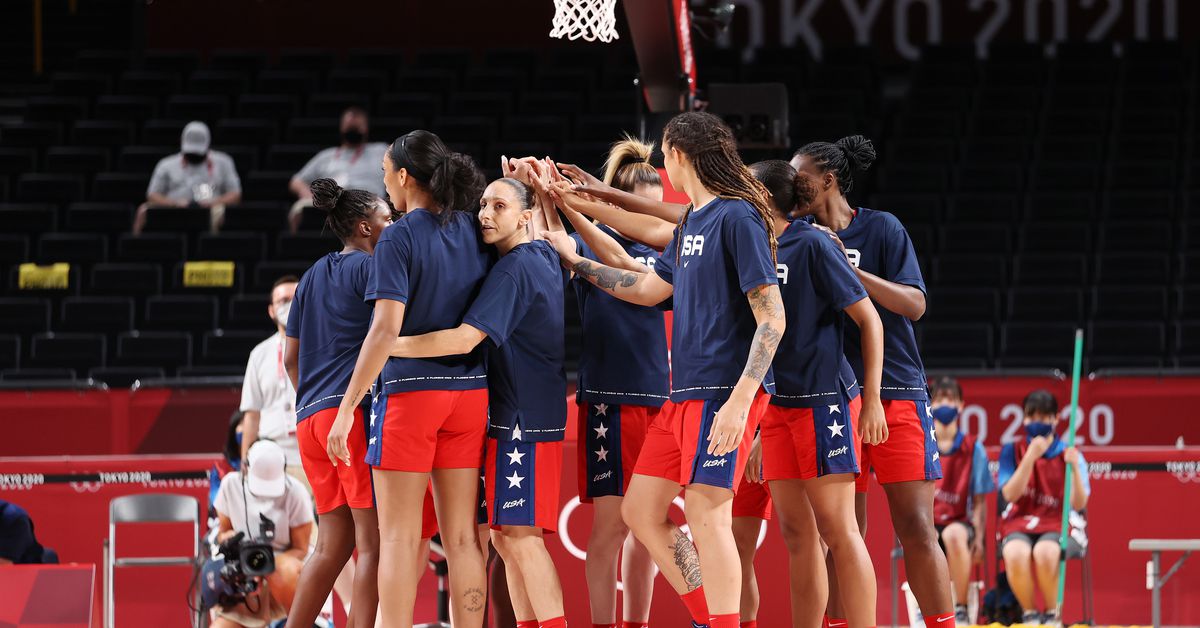
In 1988, the U.S. lost to the Soviet Union in the Olympic semifinal game in Seoul, South Korea, and had to settle for the bronze medal. About eight months later, the rules were changed and NBA players became eligible to play in international competition. So the assumption by a large segment of the media was that American basketball officials were angered by the loss, and thus decided to declare NBA players eligible so the U.S. could reclaim its rightful spot as the best basketball country in the world.
That would seem to make sense - except that it is not true. When the U.S. team with college players lost in 1988, the only players who could not participate in international competition were NBA players. Brazil's brilliant scoring machine Oscar Schmidt was playing in Italy and earning a salary in the $500,000 per year range at the time. So were many others.
To FIBA Secretary-General Boris Stankovic, the head of the organization that governs international basketball, that did not seem fair.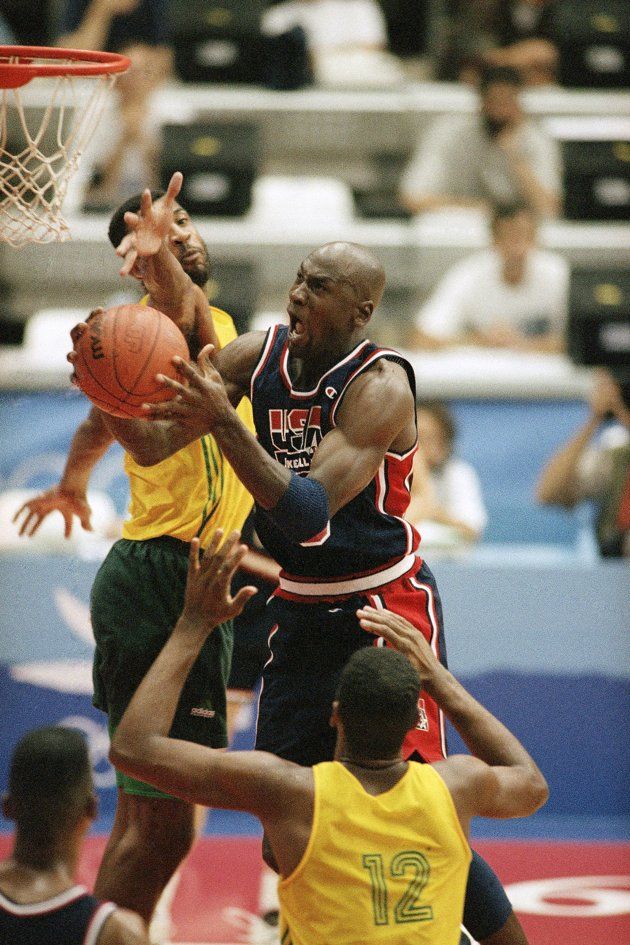 So he decided a change was needed and he led the movement to change the rules.
So he decided a change was needed and he led the movement to change the rules.
At the time, the NBA was not even a part of the organization that came to be known as USA Basketball, the governing body for basketball in the U.S. When the vote to change the rules was taken, in fact, the U.S. representatives voted against it. They were content for the U.S. to be represented by amateurs.
Once the rules were changed, however, the NBA was invited to become a part of USA Basketball, and it was determined that NBA players would play in the Olympics and World Championships with college and other young players continuing to represent the U.S. in all other international competition.
What is even less known, however, is that in 1986 - two years before Americans lost in '88 - the rules were nearly changed. Stankovic introduced the resolution for open play at a FIBA convention, and the vote to allow all professionals to play was 31-27. At the time, Stankovic said 18 or 19 countries abstained from voting, but if only five had changed and voted "yes," the resolution would have passed and the original Dream Team could have debuted in 1988 rather than 1992.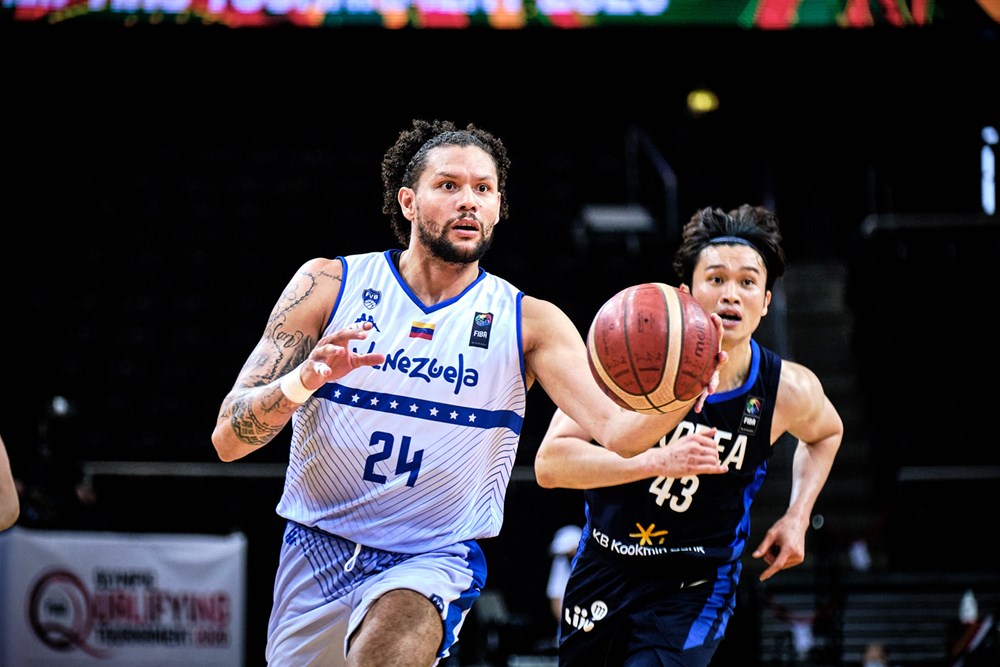
The truth, however, is puzzling. Why would international executives who want to win gold medals change a system after they won a gold medal?
"Two reasons," Stankovic said. "Our competition was closed to the NBA players, but no one else. That seems immoral. The second is very simple. Our feeling is that only by playing with the best players in the world can everyone else make progress. If you are from another country and you can run a race against Carl Lewis, maybe you don't have a chance. But you still want to run."
We saw that in 1992. The Dream Team whacked everyone it played, but the international players were thrilled to be on the same court. The experience for them was the same that it was for the rest of the world. That team was not only unforgettable but also responsible for the enormous boost in popularity for basketball on a global basis.
But the credit for that group getting the opportunity to play on the same team does not belong to anyone in the NBA or USA Basketball.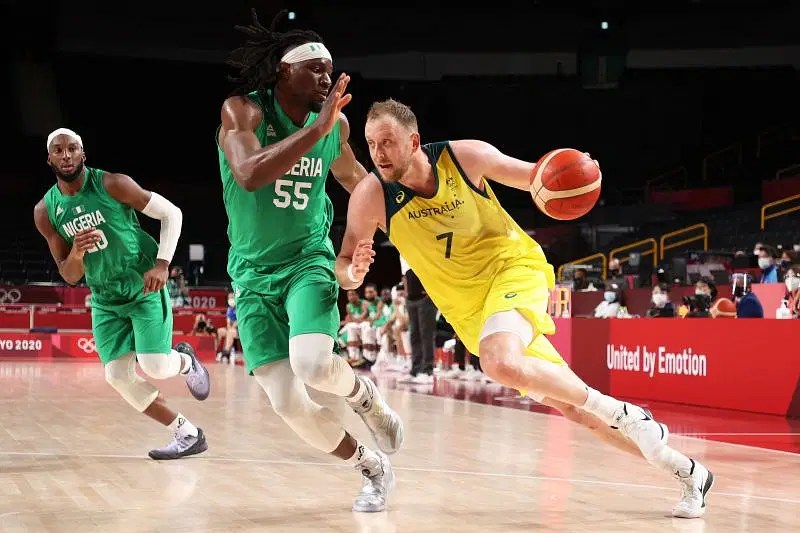 It belongs to Boris Stankovic and his group of farsighted executives, who understood that the best way for basketball to grow globally was to put the greatest players on the world stage.
It belongs to Boris Stankovic and his group of farsighted executives, who understood that the best way for basketball to grow globally was to put the greatest players on the world stage.
About the Author: Jan Hubbard is a former editor of Hoop magazine.
2024 | Basketball: Olympic Qualification Rules
The basketball tournament at the Paris Olympics promises to be full of surprises. The US women's team has been unbeaten in gold medals since the Atlanta Games, and the men's team since Beijing 2008, but the level of other teams has grown significantly in recent years. Will we have new Olympic champions?
We will know the answer to this question only in the summer of 2024, but it will be possible to form an opinion about the capabilities of the teams during the international competitions and Olympic qualification tournaments that will be held in the next two years. The first of these will be FIBA Women's World Basketball Championship starting on September 22.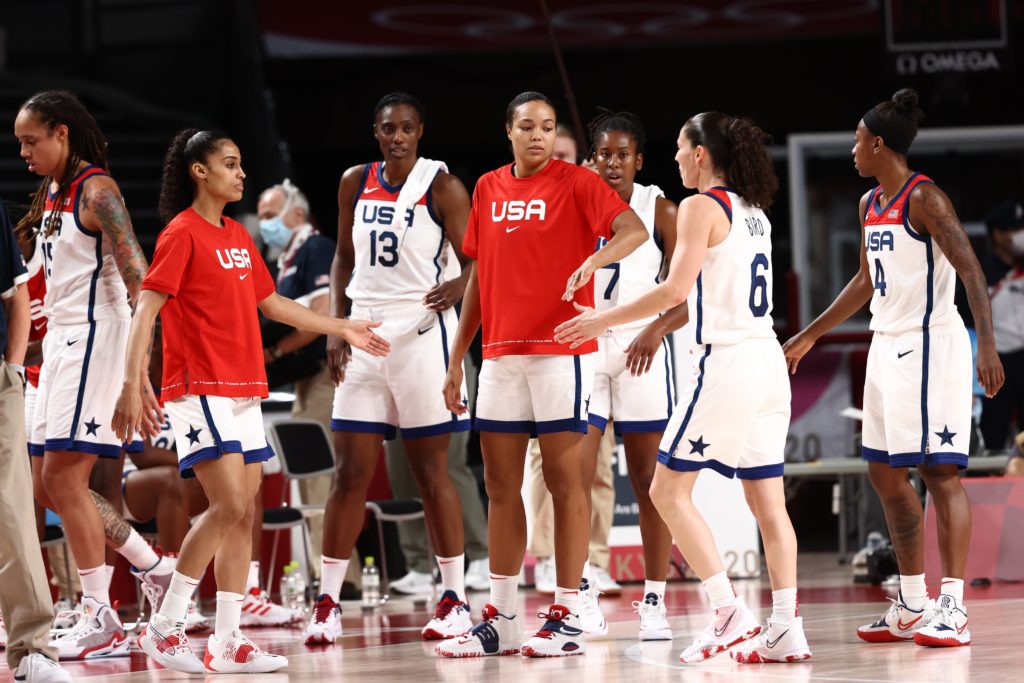
Answering basic questions about basketball qualification for the Paris Olympics.
How many basketball players will go to Paris 2024?
A total of 288 players (24 teams) will compete in the basketball tournament at the Paris 2024 Olympic Games. The number of players is the same for men and women - 144 athletes of each gender . Each tournament will feature 12 commands .
France reserves one quota for each gender as the host country . However, the final decision on these quotas will be made by the central bureau of the International Basketball Federation (FIBA) on June 30, 2023. If the Central Bureau decides not to directly award the quota to the host country, then the number of teams that can qualify in the normal way will be increased.
What does qualifying for Paris 2024 consist of?
The qualification process will differ significantly for men and women. Let's talk about the most important things.
Let's talk about the most important things.
Men
FIBA Basketball World Cup 2023: Seven Quotas
The first competition to award direct tickets to Paris 2024 will be the 2023 FIBA Basketball World Cup. The tournament will be held from August 25 to September 10 in the Philippines, Japan and Indonesia.
In total, seven quotas will be played within the framework of the championship. They will be awarded to the best teams from the respective continents according to the following distribution:
- Two for America
- Two for Europe
- One for Africa
- One for Asia
- One for Oceania
Olympic qualification tournaments FIBA: Four quotas
The remaining Four scores of will be distributed through Olympic Touric. Each of these tournaments will consist of two rounds: Pre-Qualifiers and Qualifiers .
Men's Olympic pre-qualification tournaments
Total 40 teams will compete in pre-qualification tournaments. They will be selected based on the qualification results for the last World Championship. 28 of them are teams that reached the second round of qualification, but failed to qualify for the championship itself. The remaining 12 are the highest-placed teams among those who failed to qualify for the second round of qualification.
They will be selected based on the qualification results for the last World Championship. 28 of them are teams that reached the second round of qualification, but failed to qualify for the championship itself. The remaining 12 are the highest-placed teams among those who failed to qualify for the second round of qualification.
Five teams from the pre-qualifiers will advance to the qualifiers.
In the pre-qualifiers, teams will be divided on a continental basis:
- Eight teams from Africa (one will advance to the qualifying tournament)
- Eight teams from America (one will advance to the qualifying tournament)
- Eight teams from Asia (including Oceania) ) (one to qualify)
- 16 teams from Europe (one to qualify)
Men's Olympic Qualifiers
Total 24 teams representing all continents are eligible to participate in the Olympic qualification tournaments.
There will be four tournaments in total, each of which will feature six teams.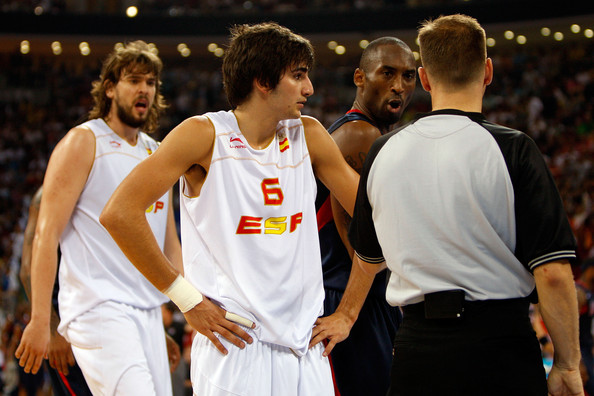 The winner of each of them will receive a ticket to the Olympic Games.
The winner of each of them will receive a ticket to the Olympic Games.
19 teams are invited to participate, which at the 2023 World Cup ranked the highest among those who did not directly qualify for the Games. Participating teams will be divided as follows:
- One team from Africa
- One team from America
- one team from Asia
- 16 The remaining commands
The remaining 5 commands are selected according to the results of pre-qualification tournaments:
- One command from Africa
- one American team
- One Asian team
- Two European teams
Women
2022 FIBA World Championship: one quota
The first competition to qualify for a direct ticket to Paris 2024 will be the 2022 Women's Basketball World Cup, which will take place from 22 September to 1 October in Australia. The winner of the championship will receive one quota .
FIBA Olympic Qualifiers: Eleven Quotas
The remaining 11 Quotas will be distributed through the Olympic Qualifiers. Each of these tournaments will consist of two rounds: pre-qualifiers and qualifiers.
Women's Olympic Pre-Qualification Tournaments
Total 22 teams will compete in pre-qualifier tournaments. There will be three such tournaments - one in Asia, one in America (each of which will play four teams) and one in Africa (which will play six teams). The top two teams from each tournament will advance to the Olympic Qualifiers.
The participating teams will be selected based on the results of the Continental Cups to be held in 2023, according to the following principle:
- Top 6 teams from Africa
- Top 8 teams from America
- Top 8 teams from Asia (including Oceania)
In addition, the winner of the World Cup (if it is not a European team) will also take part in the pre-qualification tournaments.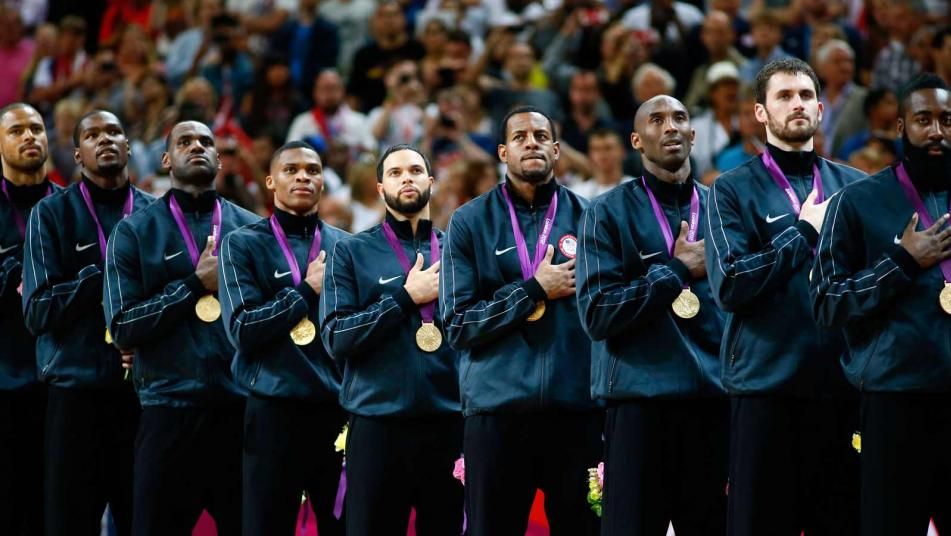
Women's Olympic Qualifiers
Total 16 teams representing all continents/geographic regions will participate in the qualification tournaments. There will be four such tournaments - four teams in each. Each continent/geographic region will be required to host one of the qualifying tournaments.
Both the host country team and the 2022 FIBA Women's World Cup winner team will compete in the Olympic Qualifiers. According to the results of the tournaments, 12 teams, including the team of France and the team of world champions - 2022, will receive the coveted Olympic tickets.
The following teams will eventually qualify for the qualifiers:
- Two teams from Africa (qualified through the African pre-qualifier)
- Four teams from America (qualified through the American pre-qualifier)
- Four teams from Asia/Oceania (qualified through the Asian pre-qualifier)
- Six teams from Europe (France + top five teams from the last European Women's Basketball Championship) ).
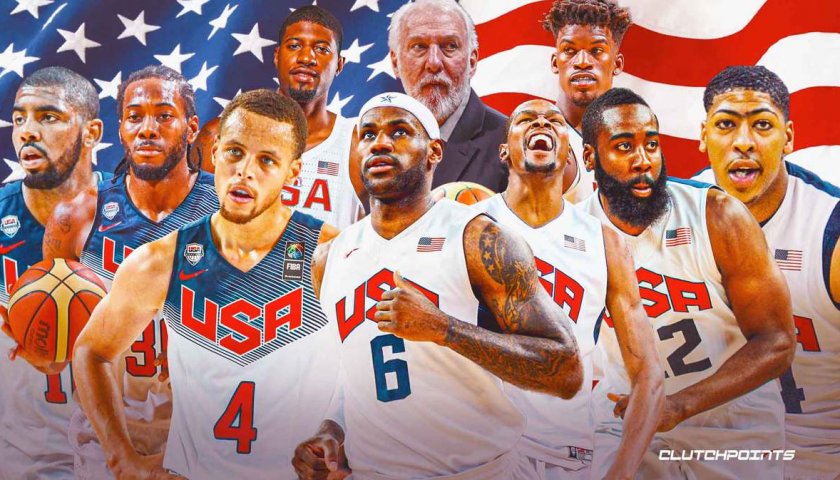
The FIBA Central Bureau reserves the right to confirm the Women's Olympic Pre-Qualification Tournament until June 1, 2023. In the event that the Olympic Pre-Qualification Tournaments are not held, an appropriate number of teams from each continent will qualify for the Olympic Qualification Tournaments directly through the 2023 Continental Championships.
When will the Paris 2024 basketball tournament take place?
The 2024 Paris Basketball Tournament will run from July 27 to August 11, 2024 .
As of today, the group stage is scheduled to take place at Stade Pierre Maurois in Lille and the play-off stage at Arena Bercy in Paris , but the venues have not yet been finalized.
Which basketball players to follow in Paris 2024?
Men
Team USA will come to Paris as the favorite. They have become champions of the last four Olympic Games, including Tokyo 2020 where they defeated France in the final.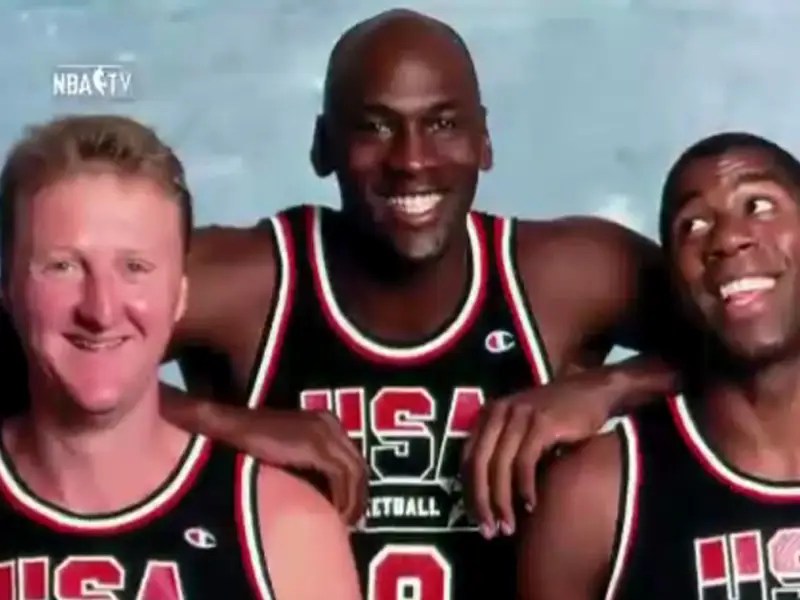 Led by San Antonio Spurs legend Greg Popovich , the Stars and Stripes won the title with a constellation of NBA stars including Kevin Durant, Zach Lavin, Draymond Green and Jason Tatum .
Led by San Antonio Spurs legend Greg Popovich , the Stars and Stripes won the title with a constellation of NBA stars including Kevin Durant, Zach Lavin, Draymond Green and Jason Tatum .
The coach of the Golden State Warriors is now on the coaching bridge of the national team Steve Kerr , and we have every chance to see his most star player - four-time NBA champion Stephen Curry - in the team. Especially as the latter stated that even with all his titles, he is "still not good enough" as he "should play for Coach Kerr in Paris 2024".
France will also aim for the gold medal at home after a strong performance in the Tokyo 2020 tournament final. Rudy Gobert and Evan Fournier is among the team's all-stars, and with NBA center Joel Embiid recently granted French citizenship, the home team may well have what it takes to succeed.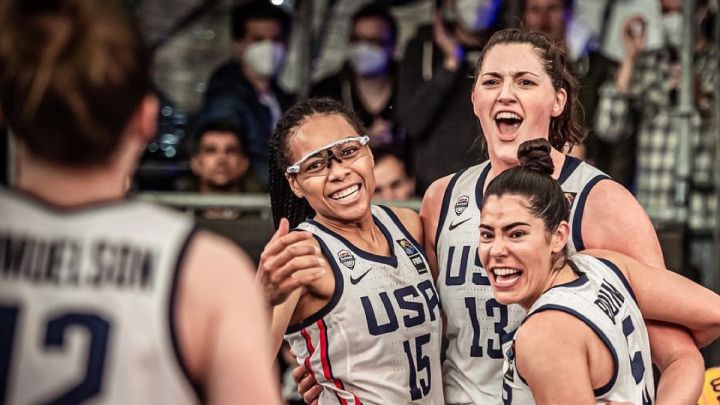
Among the strong contenders for the podium is also the Slovenian team , which reached the semi-finals in Tokyo 2020. They include three-time NBA All-Star point guard Luka Doncic .
Women
Women's tournament dominance 9Team USA 0005 is even more absolute - they won gold at the last seven Olympics. Since women's basketball was included in the 90,005 Montreal 1976 Games, 90,006 American women have won the title 9 out of 12 times.
At the Tokyo 2020 tournament, WNBA stars Sue Bird and Diana Taurasi won their fifth Olympic title and beat another legend, Teresa Edwards , became the only basketball players who managed to do so.
Bird will retire at the end of the 2022 WNBA season, but Taurasi may well go to Paris. Most recently, she became the first player over 40 in the WNBA to score 30 points in a single game. In the NBA, only Michael Jordan and Dirk Nowitzki managed to do this.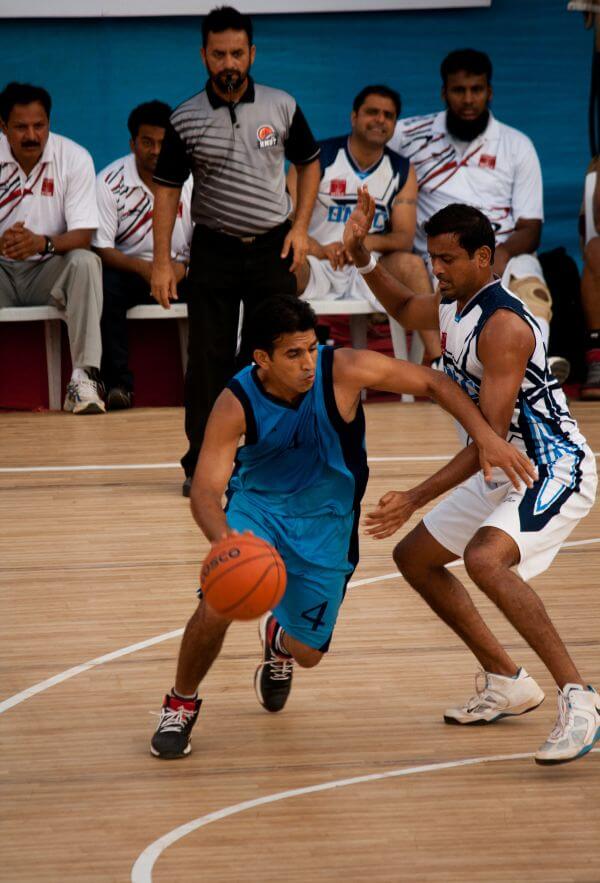
While Team USA remains the favorite to win for the eighth consecutive time, Team France is among the contenders for the podium. New York Liberty shooting guard likely to feature at home games Marine Joannes and young center Iliana Ruper .
The Belgian team, which has grown significantly in recent years thanks to the likes of Emma Misseman , may also come in as a surprise. In Tokyo 2020, the Belgians reached the quarterfinals, where they lost to hosts Japan 86-85.
The Japanese team is also worth keeping an eye on in Paris 2024 - they play some pretty attractive basketball. In major tournaments, 9 also usually performs well.0005 Australian team .
Basketball in Paris 2024. Key dates
-
September 22 - October 1, 2022: FIBA World Basketball Championship among women - 2022, Australia
- June 2023: European Basketball Championship - 2023 9000 9000
,0005 August August August : FIBA Men's Olympic Pre-Qualifiers
-
August 25 - September 10, 2023: FIBA World Basketball Championship among men-2023, Philippines, Japan, Indonesia
-
November 2023: Olympic Fiba Pre-Application tournaments among women
- 9000,0005 November 30, 2023: Noki confirm Fiba use by Fiba use by Fiba use by Fiba use by Fiba use by Fibaba use Fiba.
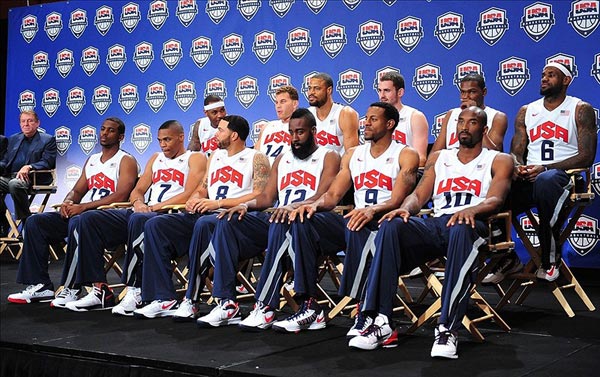 competitions for men and women
competitions for men and women -
February 2024 : FIBA Women's Olympic Qualifiers
-
Date to be announced: 66 Olympic qualification tournaments FIBA among men 2024
-
July 8, 2024: Dyaline for applications for games
-
26 - August 11, 2024 2024 in Paris
9000 📬 9000 📬 9000 subscribe to the Olympics Telegram channel to be the first to know news about your favorite athletes and major sporting events
The best basketball teams in history — Sportmaster Media
This is a story about the coolest teams in the history of basketball. We also have a text about the basic rules of the game.
Basketball is one of the most popular team games on the planet with a rich history. Over the years of the development of sports, many cool lineups have taken to the floor - they have gathered the top best teams among clubs and national teams./gold_medal_game/nike_lebron_x(10)_gold_medal_game-7.jpg)
Contents
Clubs
Teams
Basketballs
1,199 ₽
Demix | Basketball ball Demix DSB Streetball
Buy
Demix | Basketball ball Demix Skywalk
Buy
Final price
Demix | Basketball ball Demix Hoops
Buy
3 499 ₽
Demix | Basketball ball Demix DB4000 Composite
Buy
1 399 ₽
Demix | Basketball ball Demix Triple Double 7
Buy
1 399 ₽
Demix | Basketball ball Demix Triple Double 5
Buy
3 499 ₽
Demix | Basketball ball Demix DB4000 Composite
Buy
Final price
Demix | Basketball ball Demix Buzzer 5
Buy
2 399 ₽
Demix | Basketball ball Demix Fast Break
Buy
Final price
Demix | Basketball ball Demix Buzzer 7
Buy
2 999 ₽
Demix | Basketball ball Demix DB3000 Microfiber
Buy
Final price
Demix | Basketball ball Demix Buzzer 3
Buy Now
The National Basketball Association Tournament is the most prestigious club competition. The best basketball players in the world strive to join the clubs from the American event to prove their level against the background of the same monsters. The most legendary basketball rosters are from there, so the top will consist of NBA teams.
The best basketball players in the world strive to join the clubs from the American event to prove their level against the background of the same monsters. The most legendary basketball rosters are from there, so the top will consist of NBA teams.
Chicago Bulls
1 6 finals, 6 victories The greatest composition: 1995/96 Many consider the composition of the Bulls the greatest team in the history of the game - unsurpassed 72 victories in the regular season, the first of three in a row, the first of three in a row, the first of the three in a row NBA titles and Michael Jordan soaring on the floor confirm the correctness of this opinion. Now the club is far from its former heights, but the success of the Chicagoans in the 90s made an entire generation of fans fall in love with basketball.
Golden State Warriors
- 12 Finals, 7 Wins
- Greatest Roster: 2016/17
The 2016/17 Warriors team is the most powerful superstar concentration in NBA history.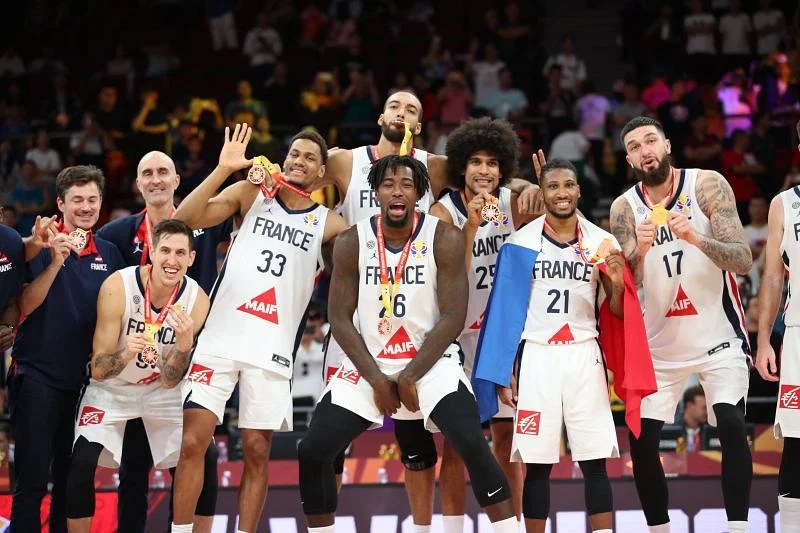 Kevin Durant, Stephen Curry, Klay Thompson and Draymond Green gathered in San Francisco at the same time. These monsters won 67 matches in the regular season, and ended the final series with a single loss and 16 wins.
Kevin Durant, Stephen Curry, Klay Thompson and Draymond Green gathered in San Francisco at the same time. These monsters won 67 matches in the regular season, and ended the final series with a single loss and 16 wins.
Boston Celtics
- 22 finals, 17 wins
- Greatest roster: 1985/86
The Celtics dominated the NBA in the 1980s, with the 1985/86 season being especially bright. The club from Boston scored 67 victories in the regular season, and lost only three times in the playoffs, destroying league rivals. Among the stars of that line-up are Larry Bird, Bill Walton, Robert Parish and Kevin McHale.
Los Angeles Lakers
- 32 finals, 17 wins
- Greatest squad: 1971/72
even after the longest periods of calm. In season-1971/72 The Lakers took the league by storm thanks to the great performance of a powerful roster that included future NBA Hall of Famers. Wilt Chamberlain, Jerry West, Gail Goodrich, Jim McMillian and Happy Hairston are the main names of that success.
In season-1971/72 The Lakers took the league by storm thanks to the great performance of a powerful roster that included future NBA Hall of Famers. Wilt Chamberlain, Jerry West, Gail Goodrich, Jim McMillian and Happy Hairston are the main names of that success.
Basketball accessories
Demix | Needle for inflating balls (3 pcs.) Demix
Buy
Demix | Whistle Demix
Buy
Demix | Demix Basketball Hoop Net
Buy
Demix | Demix ball inflation needle, 3 pcs.
Buy
Demix | Demix ball pump
Buy
Demix | Whistle Demix
Buy
Demix | Demix Double Action Pump
Buy
Demix | Demix Basketball Hoop Net
Buy
Demix | Demix Double Action Pump
Buy
Demix | Demix ball pump
Buy
Demix | Demix ball pump
Buy
Demix | Whistle Demix
Buy now
The International Basketball Federation (FIBA) has held the World Championships more or less every four years since 1950, and the sport is also featured in the Summer Olympics.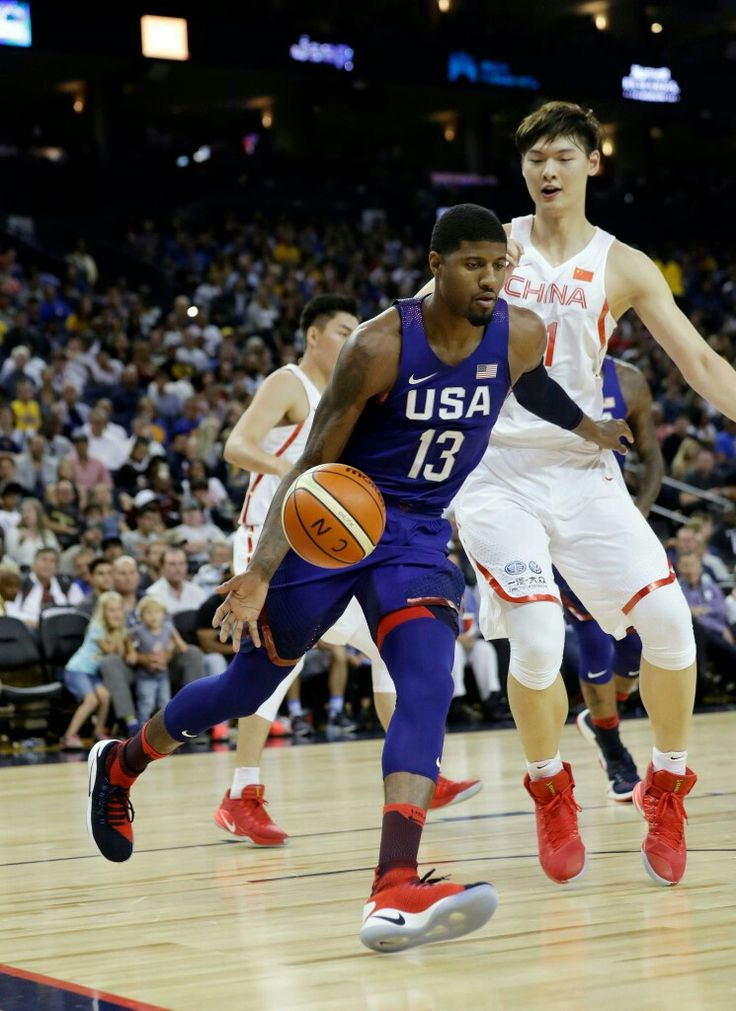 These are the most prestigious competitions of national teams - we are talking about the main successes of the national teams.
These are the most prestigious competitions of national teams - we are talking about the main successes of the national teams.
Argentina
- 1 Olympic win; 1 World Cup win
- Greatest Roster: 2004
The Argentina men's basketball team is one of the most successful teams in the South American region, having won two significant international titles. The 2004 roster is the only team to stop the U.S. national team on its path to Olympic gold since NBA players started being allowed into the Olympics.
USSR
- 2 Olympic victories, 3 world championship victories
- Greatest squad: 1988
The Soviet Union won the second Olympic gold in Seoul in 1988 after triumphing in 1972.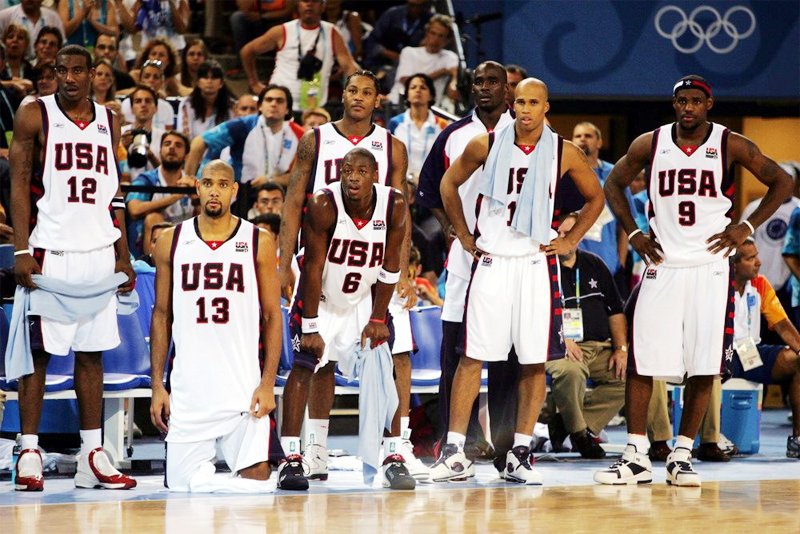 This is a memorable victory, because the USSR national team will cease to exist by the next Olympics. Lithuanian stars Sarunas Marciulionis, Arvydas Sabonis and Rimas Kurtinatis shone in that team.
This is a memorable victory, because the USSR national team will cease to exist by the next Olympics. Lithuanian stars Sarunas Marciulionis, Arvydas Sabonis and Rimas Kurtinatis shone in that team.
Yugoslavia
- 1 Olympic win, 5 World Cup wins
- Greatest Squad: 1988
Despite losing the 1988 Olympic final, that Yugoslav squad is remembered for its sprinkling of talented players, including Dražen Petrović, Vlade Divac, Toni Kukoč and Dino Raj. In subsequent years, the national team rocked the European arena, and in 1990 became the world champion.
USA
- 16 Olympic wins, 5 World Cup wins
- Greatest squad: 1992
The American national team is by far the most successful in world basketball.